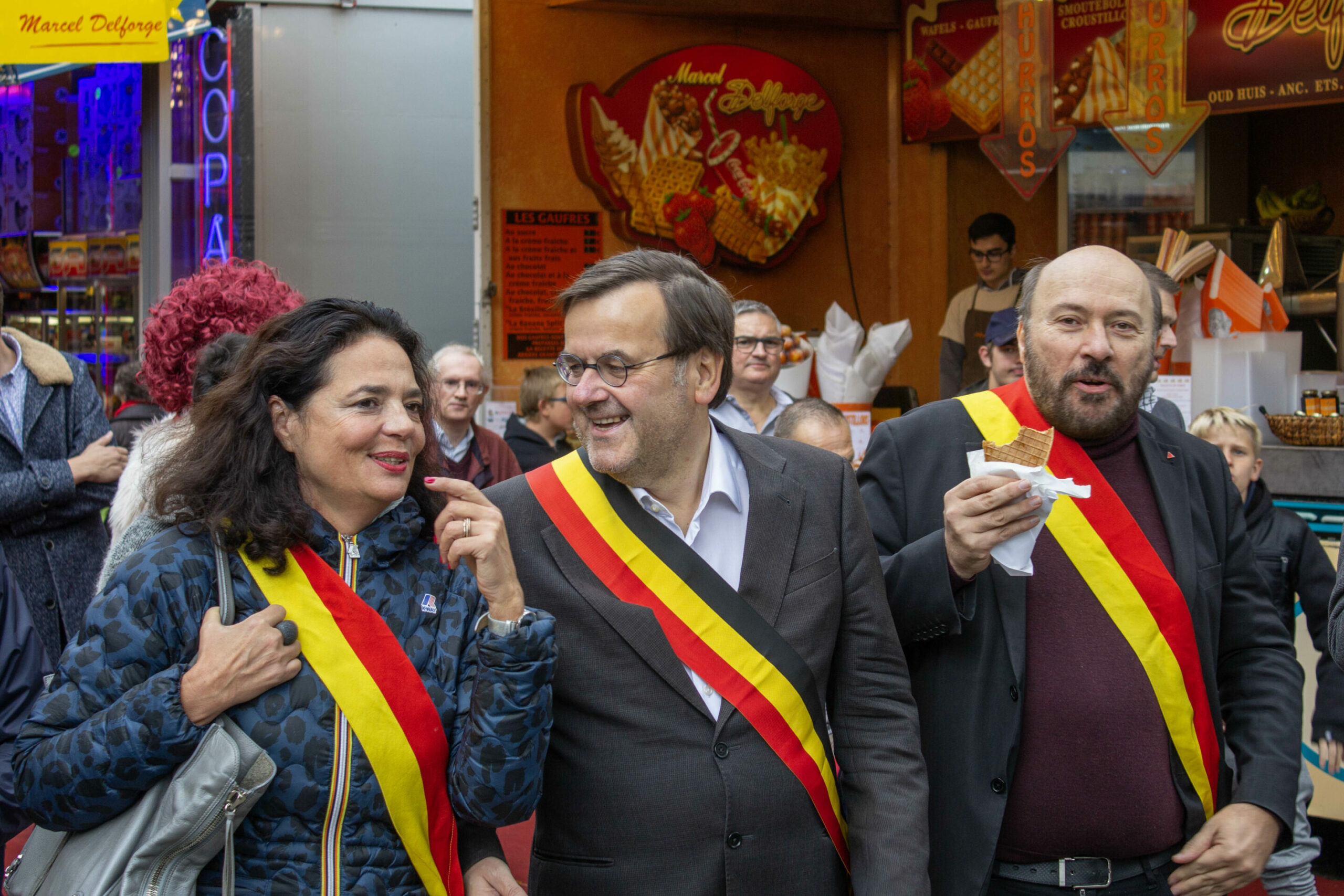People in Belgium are electing their municipal councils on Sunday 13 October. But how are mayors elected? In Belgium, there are now two systems for electing a mayor – with Brussels being the odd region out.
This weekend, voters will head to the polls for the local elections to elect the municipal council, which in turn forms a college of the mayor and local councillors.
The municipal council can be compared to the parliament of a municipality, while the college is like the government: it prepares decisions, which are then approved by the municipal council.
While governments can appoint someone as a minister even if they are not a member of parliament, all members of the college have to be elected. But how does someone become a mayor?
Understanding the vote
Understanding the local election vote is key to knowing how a mayor is elected in Flanders and Wallonia. When looking at the ballot in the polling booth on Sunday, 13 October, eligible voters can either vote for an individual person (a "name vote") or an entire list (a "list vote"). Find more about how lists work here.
When all the votes are counted and divided, one person will end up with the biggest number of "name votes", and is then dubbed the "vote champion".
However, this does not mean that they become mayors. The "voting champion" with the most amount of votes on the list (and thus the most seats in the council) is given the "initiative right" – meaning they are tasked with trying to form a coalition or majority in the space of two weeks.
If the first person fails, the person with the second-highest number of preferential votes is given a shot – a cascading arrangement that continues until a coalition is formed (only in Flanders). This coalition will determine who makes up the college and will govern the municipality.
Electing a mayor in Flanders and Wallonia
In Wallonia, the mayor has been virtually directly elected since 2006. The candidate with the most preferential votes (the "vote champion") of the biggest fraction within the majority coalition is automatically nominated as mayor.
This change was implemented to "give greater weight to the choice expressed by the electorate and to prevent political agreements from interfering with the results".
This year, Flanders will be applying this same process for the first time. "The decision was taken to follow Wallonia's example from this year, and, in inverted commas, to reward the more popular person with the voters, making it a choice of the voters rather than a partisan choice," political scientist Emilie Van Haute (ULB) told The Brussels Times.

Liège Mayor Willy Demeyer (C). Credit: Belga / Thomas Michiels
However, this will unlikely bring about big changes. "Voters who cast a preference vote often do so for people who are already the most widely known and who are sometimes already at the top of the lists. People at the top of the list are often elected to be mayor, whether by the party or by the public, and the result is often the same."
She added that it is rare for someone further down the list to get more preference votes and therefore be elected mayor.
In short, on a local level, the most outgoing person is the best-known person in the municipality and is often the person who will get the most votes, thus becoming mayor. This means the impact on who becomes mayor will likely be minimal. On the contrary: the results will likely perpetuate the current picture.
For Van Haute, it is an illusion to say this system is more democratic. "However, this depends on what people expect from democracy. If democracy means alternation or political change, this process is not the right way. This system is much more a popularity bonus, but popularity does not always translate into competence."
The system in Brussels
The odd ones out when it comes to electing its mayors are Brussels, six peripheral municipalities (Drogenbos, Kraainem, Linkebeek, Sint-Genesius-Rode, Wemmel en Wezenbeek-Oppem) and the German-speaking Community – where the old rules continue to apply. Here, the size of the municipalities and therefore the size of the lists have a much bigger impact on the results.
When there is no absolute majority, the lists with the most votes negotiate alliances for coalitions and also choose the mayor under the principle of "designation of elected representatives" or the "deed of nomination". This means the mayor in Brussels does not necessarily have to be the most popular candidate on their list or in the commune.
What is needed is agreement and support from half of the elected members on the mayoral candidate's list and the majority of those elected to the municipal council. A written nomination must then be given to the Brussels Government, which appoints the mayors.
Van Haute does not think Brussels will change its system. "I think that Brussels is more cautious and there's more of a desire for control on the part of the parties." She explained that there are large municipalities in Brussels where political competition is very strong, while in Flanders and Wallonia, this is not so much the case – some mayors have been in office for multiple terms. "But in Brussels, political competition is more important."

